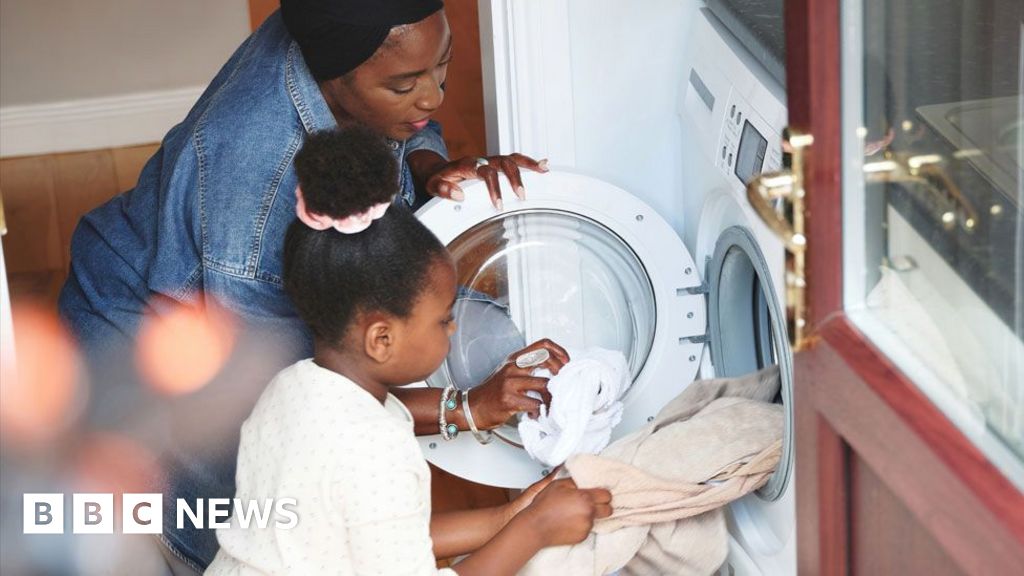The government has announced a relaxation of electric vehicle (EV) sales targets to help the car industry in the face of recent tariffs from the US.
A ban on producing new petrol and diesel cars will still come into effect in 2030, but manufacturers will now have more flexibility on annual targets as well lower fines.
Transport Secretary Heidi Alexander told BBC Breakfast its changes were not a "silver bullet" but part of the solution to responding to US tariffs.
UK opposition parties said Labour's measures would not be enough to boost the car industry.
President Donald Trump has imposed a 25% levy on cars imported to the US, which is a major export market for the UK motor industry. They came into force last week and are separate to a 10% tax on nearly all UK products announced by President Donald Trump on Wednesday.
A consultation on the government's EV target changes ended in mid-February, but Alexander told the BBC the government had sped up the process of introducing them in response to the tariffs.
The government said it had worked with UK car manufacturers to simultaneously "strengthen its commitment to the phase out" while introducing "practical reforms to support industry meet this ambition".
Under the current electric vehicle (EV) mandate, manufacturers are at risk of fines of £15,000 per car sold that does not meet the latest emissions standards.
Currently, 28% of new cars sold in the UK this year must be electric, a target that will rise each year until 2030.
But manufacturers will now be given more flexibility to balance the annual targets against each other and avoid fines by selling more EVs in later years of the mandate.
The announcement from the transport ministry said "support for the car industry will be kept under review as the impact of new tariffs become clear".
The ban on sales of new petrol and diesel cars was extended to 2035 under the previous Conservative government, but Labour promised to restore the 2030 deadline in its manifesto for the 2024 election.
Car industry leaders have previously warned that drivers were not switching to electric vehicles at the rate needed to meet the deadline due to the cost of buying the cars privately and a lack of charging point infrastructure.
Writing in the Times newspaper, Prime Minister Sir Keir Starmer said the non-compliance fine will be reduced to £12,000, and people who want to purchase EV's will be supported
"We're putting £2.3 billion towards tax breaks for people buying electric vehicles and improving charging infrastructure," he said.
The changes announced by the government include:
Mandates imposed on car firms as they transition to phasing out petrol and diesel vehicle production will be relaxed to help firms avoid finesSmaller UK firms like Aston Martin and McLaren are to be allowed to keep making petrol cars beyond the 2030 deadlineSome hybrid vehicles will be able to stay on the market until 2035Sir Keir said the measures would "boost growth that puts money in working people's pockets" and ensure "home-grown firms" can export UK-made cars worldwide.
But shadow business secretary Andrew Griffith described the measures as "half baked" and repeated Conservative leader Kemi Badenoch's claim that "net zero by 2050 is impossible".
Liberal Democrat transport spokesperson called for "better incentives" for consumers to buy electric vehicles, and said the changes "won't be enough to protect the sector from the impact of Trump's damaging tariffs".
The US is the second largest export market for the UK's car industry, after the European Union.
Coventry-based car manufacturer Jaguar Land Rover announced on Saturday that it will "pause" all shipments in April to the US as it works to "address the new trading terms".
A separate 10% tariff on UK imports came into effect on Saturday, with higher rates in place for some other major economies.
Get our flagship newsletter with all the headlines you need to start the day. Sign up here.

 Movie
Movie 2 months ago
69
2 months ago
69 




![Presidents Day Weekend Car Sales [2021 Edition] Presidents Day Weekend Car Sales [2021 Edition]](https://www.findthebestcarprice.com/wp-content/uploads/Presidents-Day-Weekend-car-sales.jpg)



 English (United States)
English (United States)